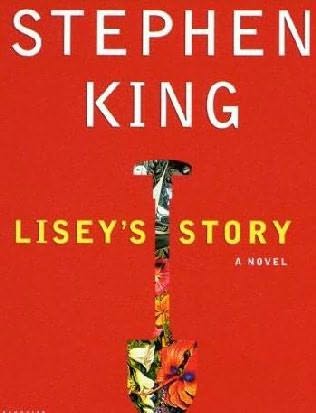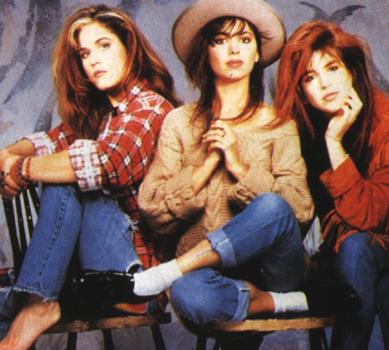5,673 Smuckings
 You know how Procter and Gamble executives proudly donate 70% of their paychecks to Satan, who collects (presumably in person) every Halloween? The rumor that Tabitha King has been doing most of her husband's writings is about as old, and a lot more credible.
You know how Procter and Gamble executives proudly donate 70% of their paychecks to Satan, who collects (presumably in person) every Halloween? The rumor that Tabitha King has been doing most of her husband's writings is about as old, and a lot more credible.
The conspiracy theory camp should have a field day with "Lisey's Story," Stephen King's most recent (and most self-conscious) attempt to write "serious literature."
"Lisey's Story" is a wind-beneath-my-wings story about the over-looked wife of a famous horror writer coming to terms with, well, whatever it is that chicks come to term with in chick lit. Her place in the world? Her ability to roar? Who knows?
A reverse "Bag of Bones", the book exhibits most of late-King's bad tics: descriptions that go on and on and on. And on. Static stream-of-consciouness passages that would leave Joyce begging for a werewolf to jump out. But the deal breaker, the real deal-breaker in "Lisey's Story," are the smuckings. See, Lisey and her husband share this cutesy husband-and-wife language in which smuck replaces fuck. This is toootally smucking cute, the first two smucking times it happens, but then it smucking begins to grate as you realize it is not going to smucking stop until the last smucking page. And there are a smucking LOT of THOSE.
King is seldom less than entertaining, (hey, I'm a fan), and there are a lot of things to recommend the book, but 5,673 smuckings might just be too many. I suspect "serious" reviewers might throw it a bone: "There are no vampires in THIS one! Now we can read without guilt."
But Stevie, I liked you because when everyone else was writing "serious literature" you were writing about wonderfully unserious zombies. What hapenned, man?











